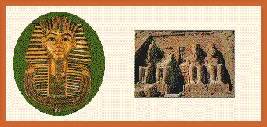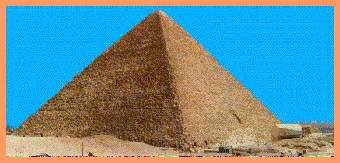|
PinkMonkey Online Study Guide-World History
1.3 Early Civilizations
World history gives a picture of the progress of
civilization, which denotes the material progress achieved by man
in the economic, political, moral and psychological spheres. Civilization
comes from the Latin word ’civitas’ meaning city.
According to H. A. Davies "Civilization
implies settlement in definite territories, the building of cities,
the evolution of ordered methods of government, the development
of trade and commerce, and a capacity for progress which is unrestricted."
The earliest civilizations developed almost
simultaneously in the three great river valleys of the Tigris
and the Euphrates called Mesopotamia, the Indus
(now in Pakistan) and the Nile in North Africa in
Egypt.
The Egyptian civilization is probably the
oldest known to man. The world acknowledges the contribution of
the Egyptians who were the first to give one a calendar and a shadow-clock
to measure time; a census and postal system; glass; paper and ink.

Exhibit 1.1
Artifacts of ancient Egypt
Distinctive Egyptian architecture emerged during the period
4000-30 BC. The best representatives of this architecture are Egypt’s
tombs, pyramids and temples.

Exhibit 1.2
An Egyptian pyramid
|